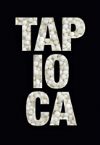|
ESL Forum:
Techniques and methods
in Language Teaching
Games, activities
and teaching ideas
Grammar and
Linguistics
Teaching material
Concerning
worksheets
Concerning
powerpoints
Concerning online
exercises
Make suggestions,
report errors
Ask for help
Message board
|
ESL forum >
Ask for help > which verbs have a stronger meaning than the other equivalents
which verbs have a stronger meaning than the other equivalents
|

gharbi2009

|
which verbs have a stronger meaning than the other equivalents
|
|
In our textbook, students are given an extract from a thesaurus page and asked to determine which verbs have a stronger meaning than the other equivalents. here is the extract: invent- Syn. devise, discover, create, find, fashion, form, fabricate, design, plan, frame, project, scheme, carry out, imagine, simulate, visualize, fancy, conceive. How can I decide which goes with which and which is stronger than the other? ( by the way, an example was given and the easiest one as usual in textbooks: fancy has stronger meaning than imagine) |
27 Nov 2015
|
|
|
|

Tapioca

|
|
Hi Gharbi, I am really struggling to understand what the textbook author intended with this exercise. I must be missing something but how does fancy as a verb have a �stronger � meaning than imagine? It really doesn �t make sense to me at all. Would you be able to take an actual photograph of the page and post it? Thanks, Tap |
27 Nov 2015
|
|
|

gharbi2009

|
|
hi Tap! this is what is written on the page word for word: 2. Study this extract from a thesaurus page then determine which verbs have stronger meaning than the other equivalents. Follow the example: fancy has a stronger meaning than imagine. Invent-Syn ( the list I posted before). Thanks for your time and consideration |
27 Nov 2015
|
|
|

Tapioca

|
|
Wow, maybe my brain is not working properly, but I still don �t understand what �a stronger meaning � is. What did you understand by it? Does she mean which words are closest to each other in meaning? So, then perhaps the most common or closest synonyms of �invent � might be devise, create, design, and conceive. Tap |
28 Nov 2015
|
|
|

yanogator

|
|
Tap, it confuses me, too. Like you, I think closest in meaning might be what is intended, but I don �t think this is a very useful exercise. I would say that "find" is the "weakest" (using our interpretation) synonym for "invent". I barely consider it a synonym at all. Bruce |
28 Nov 2015
|
|
|

gharbi2009

|
|
thanks Tap and Bruce for your help. After all, a textbook isn �t a sacred book and we often find confusing tasks in them. I �m going to change the task by providing contexts in which these verbs can be used and how close they are in meaning |
29 Nov 2015
|
|
|

Tapioca

|
|
That sounds like a good plan! :-) Also, by using the word �closer (in meaning) rather than �stronger �, you could maybe draw the relationships graphically on the board, with a circle around the key word and the other words literally closer to the key word or farther away from it (or even outside the �circle of meaning �). It will help them to understand that a list in a Thesaurus must be treated with some caution and that not all words are �equal �, which I think was the original intention of the exercise. :-) Tap |
29 Nov 2015
|
|
|

yanogator

|
|
Great suggestion, Tap. A "visual thesaurus" like that can be very useful in class. Bruce |
29 Nov 2015
|
|
|






